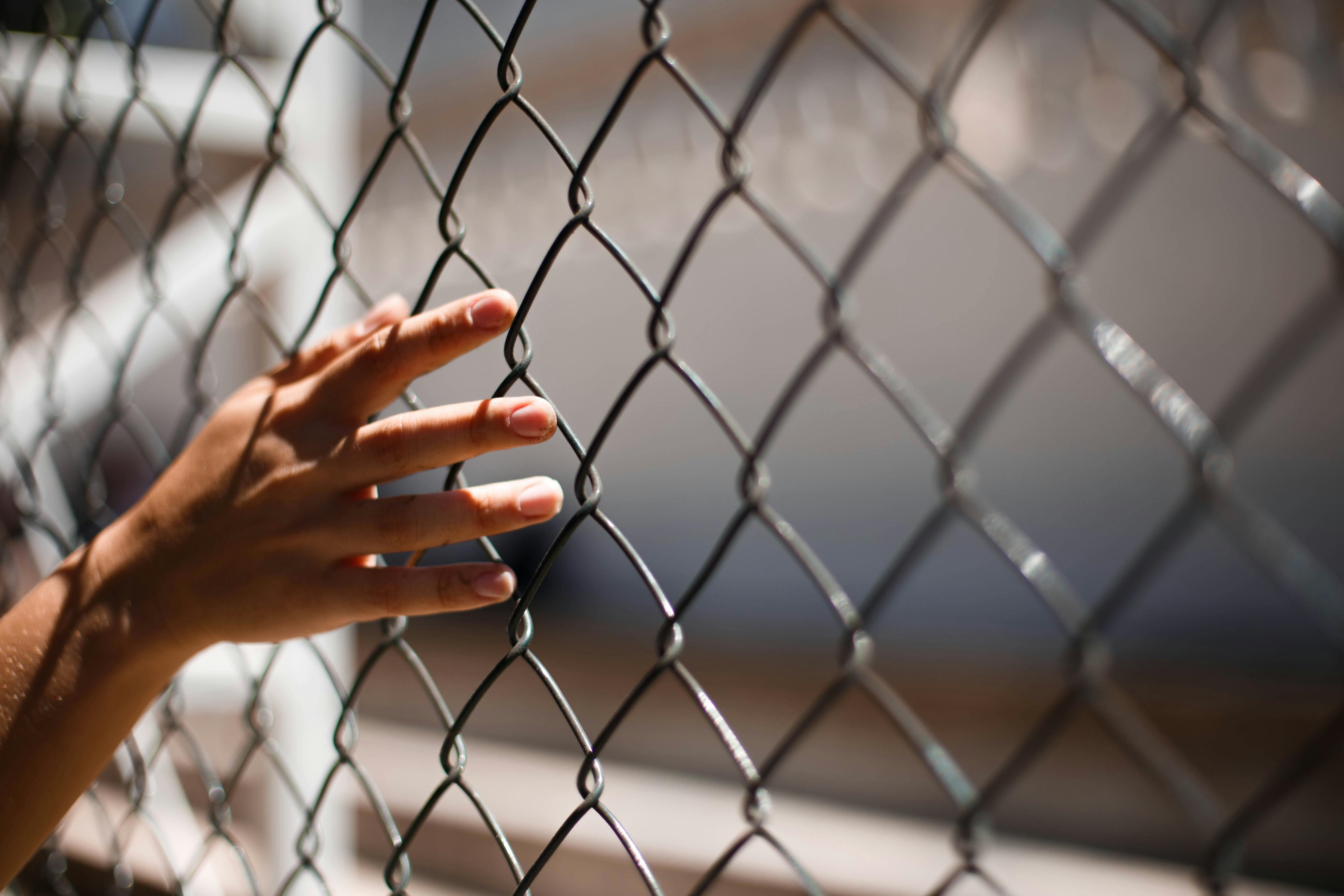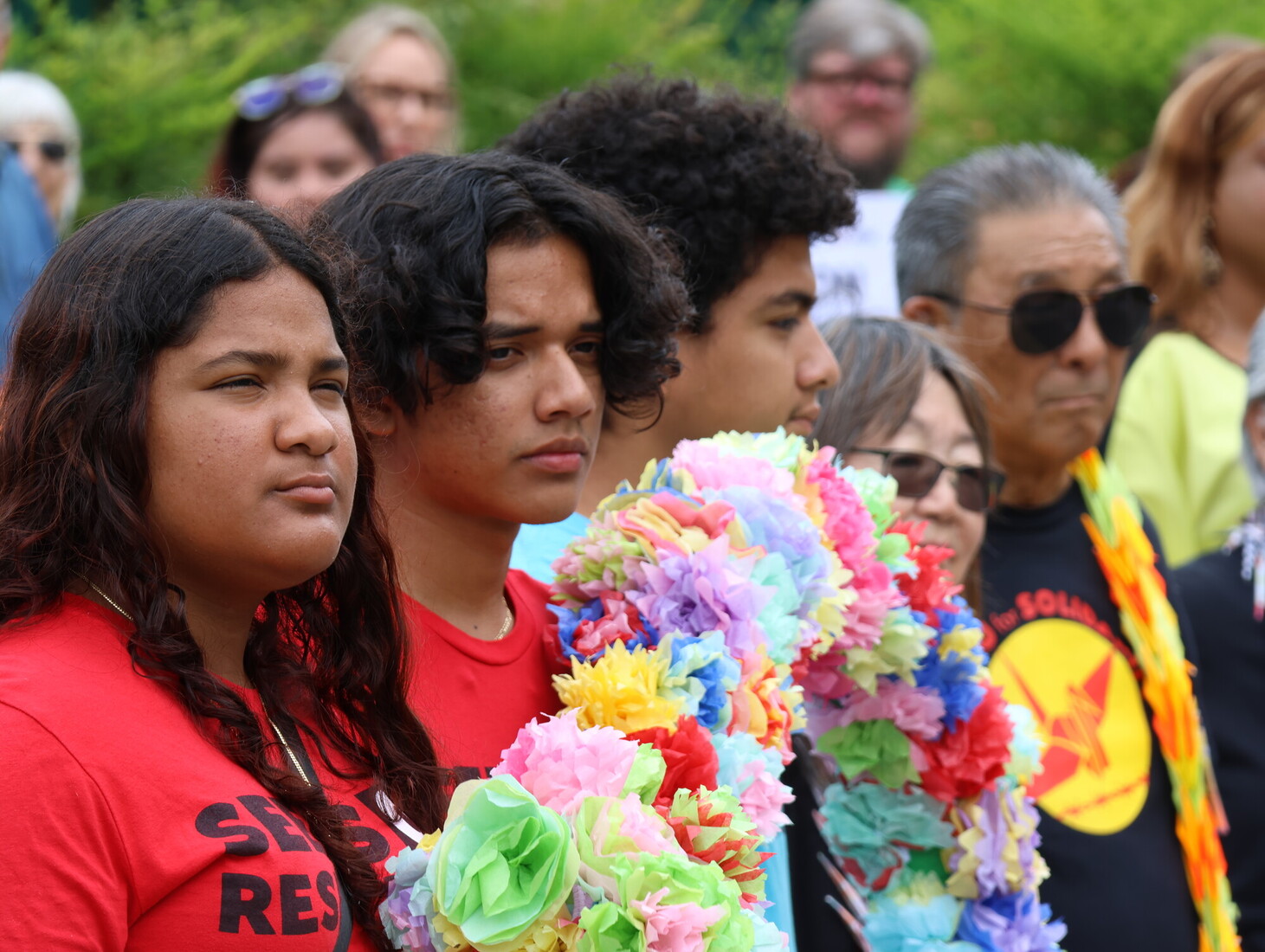
Photo: Caroline Martins
Maria* will never forget the day last summer when her son was nearly deported. Hector*, 28, called from an immigration detention center in Louisiana. He told his mother that immigration authorities planned to put him on a plane to Honduras the very next day—even though he had not set foot in the country since he was 5 years old.
“I started praying right away and crying,” Maria, a mother of six, recalls. “Then I messaged Ilana.”
Ilana Herr is an immigration attorney with AFSC’s New Jersey Immigrant Rights Program. Ilana and her team are part of the Detention and Deportation Defense Initiative, a program funded by the state of New Jersey to provide pro bono representation to immigrants facing deportation. She had provided legal representation to Hector since July 2021 when he entered state custody.
Since then, Ilana had pursued multiple legal options to keep Hector in the U.S. where he belongs, including several that were still pending at the time that Hector called his mom. There was no way he should be deported.
Over the next 24 hours, Ilana and her team did everything they could to keep that from happening. Thankfully, they succeeded in stopping his deportation, much to the relief of Hector, Maria, and their entire family.
The family's ordeal is something no one should ever have to go through. But their story is one of millions of examples of an immigration system that too often separates families and causes unnecessary suffering. It’s also a reminder of why we need a welcoming, dignified, and just approach to immigration that allows people to come to the U.S. and build new lives.
A mother's perilous journey
The family’s immigration journey began in 1999, when Maria made the difficult decision to leave Honduras after Hurricane Mitch destroyed their home. With nothing left, she decided to seek a safer life for her children in the U.S. She embarked on the nearly 2,000-mile journey with her son, Kevin, who was just a few months shy of turning two years old, leaving her older children in the care of family members.
The trek was perilous. Maria and Kevin traveled over rough terrain, faced hunger and dehydration, and were robbed at gunpoint. Sadly, their experience mirrors those of many other immigrants who make the difficult journey to seek asylum in the U.S. Having a more humane, streamlined legal immigration process would reduce these risks and respect the basic dignity of people simply seeking a safer and more stable life. Upon entering the U.S., Maria faced the harsh realities of the immigration system and struggled to figure out the complex immigration system without a lawyer.
A year later, Maria’s other son, Hector—then 5 years old—arrived in the U.S. He received a removal order because his mom did not know about his court date. This order would unknowingly hang over Hector for years. It’s one example of how the system often penalizes immigrants who are unable to navigate an unfamiliar, complicated legal process without an attorney.
Raising a family through hardship
In the years that followed, Maria and her children settled in New Jersey, where she faced a new set of challenges raising her family as a single mother. She worked hard to support her children, often juggling two jobs in construction to make ends meet. They sometimes had to depend on friends for shelter, even sleeping in a friend’s garage at one point.
“Sometimes I worked from 7 a.m. to 9 p.m. and only got paid $50 a day,” Maria says. “It was very tough, but I did it for my children. They are my life.”
As the oldest brother, Hector helped Maria care for his younger brothers, taking on additional responsibility well beyond his years. From a young age, Hector dedicated himself to supporting his family, working construction jobs as a teenager and later becoming a warehouse worker for companies like Amazon.
“He went above and beyond to take the kids to school and help with their expenses,” Maria says.
But everything changed in 2021, when Hector, then 25 years old, got into a minor traffic accident. When police searched his vehicle, they found a weapon that wasn’t licensed to him in the glove compartment. He was arrested after leaving the hospital. His public defender referred Hector to AFSC for a legal consult. This is when he learned that he had a deportation order that had been issued against him when he was only 5 years old—something he had never known about.
“I was completely shocked,” Hector says.
Caught in the system's cruel grip
From there, things got much worse for Hector and his family. While in pre-trial criminal custody, he was assaulted. He suffered a facial fracture that required surgery. Because he was incarcerated during the COVID-19 pandemic, jails were closed to visitors, and he was not allowed to see his family.
Additionally, Hector had to remain in criminal custody while he resolved his case to avoid being deported while he was challenging his in absentia removal order. After pleading to unlawful possession of a weapon (an offense with no immigration consequences) and serving his sentence, Hector was immediately transferred to an ICE detention center in rural Pennsylvania in June 2023. There, he faced deportation from the only country he'd known since childhood. The conditions at the facility were inhumane.
“It was a living hell,” Hector says, describing overcrowded cells, lack of medical care and basic hygiene, and inadequate food—a grim reality shared by many in ICE facilities. “Sometimes, they wouldn't let us out of our cells for a month, not even to shower,” he adds.
Maria’s health also began to decline, exacerbated by the stress and anguish of having her eldest son in detention. Hector’s younger siblings suffered, too, including his two U.S. citizen brothers who missed the older brother who had helped raise them.
Meanwhile, Ilana pursued every legal pathway to prevent Hector from being deported. She filed a motion urging an immigration court to reopen his deportation case because his removal order was unknowingly issued when he was just 5 years old, along with an asylum application because his life would be in danger if he was deported to Honduras. She also filed an application for a U-visa because he was the victim of a crime while in jail.
But the need to get Hector out of detention escalated to an emergency level one morning last July. That’s when ICE officials woke Hector from his bed at 4 a.m. They told him he was being transferred to an ICE facility in Louisiana. Unbeknownst to Hector, that facility was the staging area for deportations. Even though Hector had an appeal pending before the Board of Immigration Appeals and a pending U-visa application, there was no automatic stay of removal for people in Hector’s position. That meant ICE could deport him at any moment.
Racing against the clock
After four days in the Louisiana detention center, Hector was informed that he would be put on a plane to Honduras the following day. “I was losing my mind, stressing out,” Hector recalls. He made a frantic call to his mother. That’s when she contacted Ilana.
“When I heard from Maria, I knew we had to act fast,” Ilana says. “It was a race against time.”
Ilana coordinated an emergency effort to stop the deportation. She navigated the system’s complex bureaucracy, filing urgent legal requests and reaching out to multiple agencies and officials with the help of AFSC colleagues with the Immigrant Rights Program’s advocacy and organizing team. Despite initial setbacks, her persistence paid off when ICE agreed to halt Hector's deportation while his case was being reviewed. Ilana quickly relayed this crucial information to ICE officials and called Maria with the good news.
For Maria, the news was an overwhelming relief. “It felt like a miracle,” she says.
Hector felt the same. “It was like a weight lifted off my shoulders. If it wasn’t for Ilana, I wouldn’t be here today.”
Still, despite confirmation from federal prosecutors that he would not be deported, Hector was nearly deported the very next day.
He was handcuffed, shackled, and taken to the boarding area. In a final act of desperation, Hector sat on the ground and refused to board, insisting that officers double-check his case. It worked. The officers confirmed that his deportation was indeed canceled. Hector narrowly avoided being sent to a country he barely knew.
“It was incredibly stressful and came down to the wire, but knowing that Hector wouldn’t be deported was a huge relief,” Ilana says. “The moment we received the confirmation was incredibly emotional for all of us.”
A joyful homecoming, an ongoing struggle
After continued advocacy by Ilana and AFSC staff, ICE finally granted Hector a one-year stay of removal and released him from custody in October 2023. “We celebrated that Hector would finally be back home where he belongs,” Ilana says.
By the time Hector returned home to New Jersey, his family hadn’t seen him in over two years because of COVID-19 restrictions. Their reunion was filled with hugs, kisses, tears of joy, and profound gratitude for the chance to be back together.
“I can’t describe the happiness in that moment,” Maria says. “Having him back is a blessing, and we are so grateful to Ilana and AFSC for everything they did. All our anguish turned into happiness in one moment.”
But the reunion was also bittersweet, Hector says. “I was sad because I had missed so much time with my family. When I left, my younger brothers were really small. Now they’re almost my height. I feel like I missed a lot of their lives, but I’m grateful to be home now to see them grow up."
In December 2023, more than a year after the original motion had been filed by Ilana, the Board of Immigration Appeals finally ruled in Hector’s favor. His removal order was rescinded. Now, Hector has the opportunity to present his immigration case before an immigration judge for the very first time while being supported by his loved ones in New Jersey.
Immensely grateful to be reunited, Hector and Maria also know they are part of a larger struggle. They want to see changes to our immigration system to ensure no family has to go through what they did.
“The president and Congress should look into why immigrants are moving to the U.S. in the first place, what is happening in the countries we’re coming from,” Maria says. “Before deporting us, look at us as people, not just bodies you need to move. Everyone should be treated humanely and given a second chance.”
*Pseudonyms are used to protect the identities of AFSC clients and their families.
